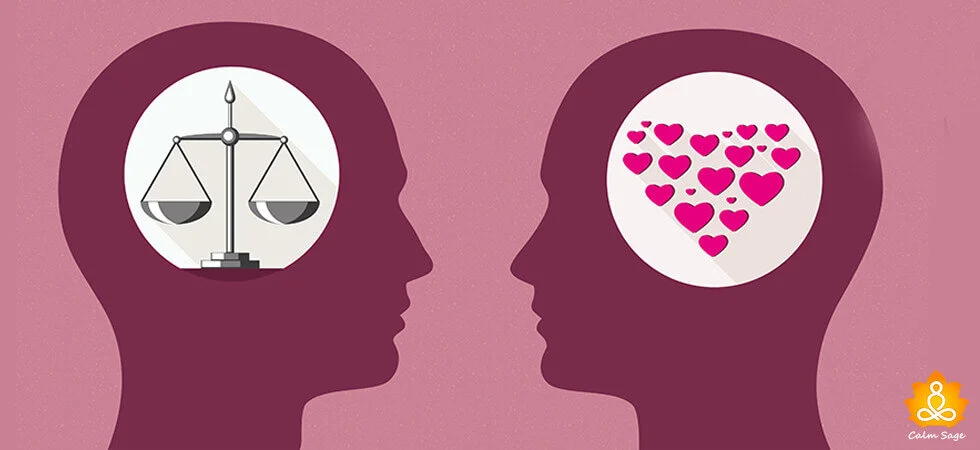
Are We Rational?
Aishi Basu | Tuesday September 28th 2021
Behavioural economics is now a blossoming field that took the economics world by storm after Richard Thaler’s Nudge was published.
In economic modelling, we presuppose rationality, that is, the desire to maximise one’s utility. However, this textbook theory isn’t based on empirical evidence, rather it is built on the assumption that people are walking-talking calculators that perform a multitude of cost-benefit analysis in our minds. Rational choice theory is often criticised for the fact that ‘homo economicus’ doesn’t equate with us ‘homo sapiens’. Do we have transitive preferences that follow a>b>c, with no ambiguity and perfect information? Do we only act in our best interest and never think about the consequences of our actions for others?
At times, rationality is a rather bleak and dismal concept. According to Fedderson and Pesenderorfer’s voter theory, nobody should ever vote. The theory posits that a vote is only important when it determines the fate of an election. In the US 2020 elections, 66% of the voting population turned in the ballot - hence acting irrationally. Yet, feelings like patriotism can overwhelm rationality when making economic decisions, as seen in ‘Predictably Irrational’.
Rationality is also a nuanced concept. With his America First policy, Donald Trump defected from global cooperation when he pulled out of the Paris climate agreement. While such an action was deemed outrageous, it suffices to say that it was perfectly rational. As a result of his action, Trump’s investments in fuel stocks and shares soared, causing great personal benefit. Simultaneously however, his defection will have grave and lasting consequences for the US in the long run. Nevertheless, due to the fact that the US presidency has a 4 year term and Trump hasn’t been re-elected, the probability that Trump may need to bear the consequences for his action is now low. In his capacity as the president of the US, Trump acted rather selfishly and unreasonably, as he had a heuristic perspective for the future of the US and failed to consider global consequences. However, as an individual, Trump acted as a relatively rational economic agent who seeked to maximise his personal gain regardless of the consequences.
The truth is nobody is ever perfectly rational. We all have cognitive biases embedded in our memory and psychology that convince us to behave erratically, emotionally or illogically at times. Our ‘animal spirits’ take over, especially in times of progress or duress, hence driving the financial economy. For instance, in the financial crisis of 2008, people behaved irrationally as they emulated the actions and decisions of those around them, a phenomenon termed as the bandwagon effect. The multitude of these micro decisions lead to havoc in the macro market, with investment banks in Lehman brothers being run dry. It further refutes the efficient market hypothesis, as prices don’t reflect worth or quality. Rather, human irrationality causes boom and bust cycles and overvalued investment bubbles, like the dot com bubble.
Let’s look at three amusing case studies of our irrationality as shown by Daniel Arierly:
1. The Zero Price Tag
When Amazon first introduced its free shipping, Amazon saw its sales soar as consumers flocked to its zero price tag. This happened everywhere but France, where the $0.20 pricing for shipping was kept. When Amazon realised this phenomenon of human behaviour, they quickly changed France’s shipping to one with $0 pricing. Subsequently, France’s increase in sales matched that of the global spectrum.
2. The Value of Ownership
The value of ownership can be seen through the endowment effect: when we own something, we value it more. Students at Duke University sleep out for weeks to get basketball tickets, and due to the high demand, even those who sleep out are subjected to a lottery. Those who don't receive the tickets say that they would pay up to $170 for one, whereas those who do, speculate that they wouldn’t accept less than $2400 for it.
3. Market Fallacies
When Savador Assael- now the renowned Pearl King- first attempted to create a market for black pearls, it didn’t end very well. In fact, it was an utter disaster as he failed to sell even a single pearl. He soon approached his friend Harry Winston, who put the pearls up for display along with diamonds and rubies in the window of his 5th avenue store with an outrageous price tag. Soon after this advertising, black pearls were considered precious jewels.
In conclusion, accounting for irrationality in quantitative modelling is imperative due to its protean effects on politics and policy. Nudge theory has been utilised to increase enrolment in free lunches for millions of American students, improve organ donation outcomes and ameliorate dietary and sanitary choices. Whether its government ‘nudging’ their citizens to make healthier choices, firms ‘anchoring’ their consumers by offering sales on pricy products or the public mimicking each other as demonstrated by the ‘bandwagon effect’, behavioural economics is a tool that has the potential to revolutionise our approach to the world. As economists, it’s important that we embrace the fallacies of human nature and use this irrationality to improve living standards and social welfare.
